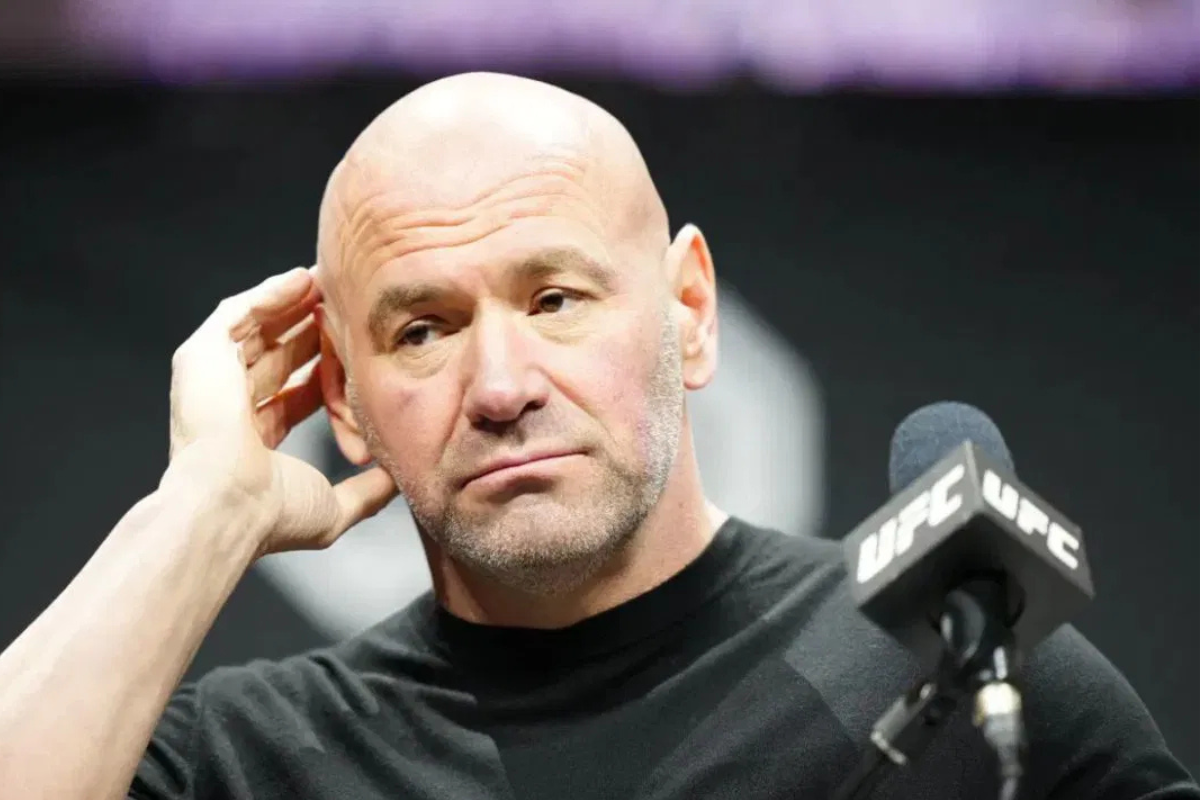
Imago
Credits: Imago

Imago
Credits: Imago
At UFC 320, bantamweight fighter Yana Santos was not happy about fighting under the circumstances she did against Macy Chiasson. The latter missed weight ahead of the fight, and despite not wanting to compete against an overweight opponent, Santos claimed that she was forced by Dana White and Co. to fight to avoid penalties. This was a surprising thing to hear for the community, but veteran Josh Thomson has revealed that this isn’t something new in the UFC.
Watch What’s Trending Now!
Josh Thomson competed in the UFC for half a decade, so he knows a thing or two about the UFC’s modus operandi. He has been one of the most prominent figures in the MMA world who has voiced their displeasure with fighter pay. Now, Thomson has opened up about Dana White‘s pressure tactics that he uses on his fighters, claiming that the CEO’s approach has never changed in the past couple of decades.
ADVERTISEMENT
Josh Thomson details the UFC and Dana White’s tactics for weight misses
Josh Thomson claims that he cannot speak for Yana Santos and what happened to her. He doesn’t have any connection with her, nor does he know her team as well as he does some of the other teams, including Team Khabib. However, he claims that being forced to fight is something that many fighters have faced over the years. “This is common,” Thomson stated on the Weighing In podcast.
ADVERTISEMENT
“Now, I wasn’t there… So I don’t know what Dana or… what Hunter or what anybody said to her. She’s the only one who can speak on that, or her coaches if they were there as well,” he added. The MMA veteran claims that Dana White and Co. aren’t the only ones who pressure fighters to compete against fighters who’ve missed weight by a massive margin. The State Athletic Commissions also play a part in it.
“I don’t really think it’s said really that directly. But… I’ve had this conversation with countless fighters… The pressure is put on us to still fight even though the unprofessional one, the one who missed weight by 2 lbs, 5 lbs, 8 lbs [didn’t make the cut],” the former UFC fighter further stated. “I have seen as high as 12 lbs, and then the Commission comes to us and says, ‘Hey, do you still want the fight?’ F— no, I don’t want the fight.”
ADVERTISEMENT
Josh Thomson claims that he’s not sure if there is anything that can be done to sort these things out. That’s because penalizing them would only discourage them from competing. “I don’t have an answer for the remedy of how do you stop this from happening. Everyone’s like, ‘Take 50 percent of their purse.’ Then, the guy won’t fight himself,” Thomson added.

Imago
MMA: UFC 303 – Garry vs Page Jun 29, 2024 Las Vegas, Nevada, USA UFC CEO and president Dana White during UFC 303 at T-Mobile Arena. Las Vegas T-Mobile Arena Nevada USA, EDITORIAL USE ONLY PUBLICATIONxINxGERxSUIxAUTxONLY Copyright: xMarkxJ.xRebilasx 20240629_jhp_su5_0104
We heard similar stories back when Stephen Thompson refused to fight Michel Pereira at UFC 291 after the latter missed weight. Pereira missed weight by three pounds, and ‘Wonderboy’ was having none of it. Later, it came out that he did not receive his show money despite doing his part. Dana White had said at the time, “You come in and you don’t fight — first of all, you decided not to fight. The guy was three pounds overweight; whatever it was, you get a piece of his purse if you take the fight. But if you deter you decide you don’t want to take the fight. We also offered him another fight.”
ADVERTISEMENT
It was evident that the UFC tried to get Thompson to take the Pereira fight. But problems arose when he declined the UFC 291 bout and the replacement bout a few weeks later. From Thompson’s perspective, that could have been an entirely new opponent, with another weight cut, and that might not have been a smart move, especially after he did everything right.
ADVERTISEMENT
Also, it appears that the fighters who go unpunished despite missing weight do not feel any remorse when it comes to their missteps. Yana Santos, for instance, revealed after her UFC 320 fight that Macy Chiasson never apologized for her mistake.
Yana Santos disappointed over her opponent’s attitude after missing weight
ADVERTISEMENT
Despite the odds, Yana Santos was able to secure a win against Macy Chiasson and was glad that she was able to take a portion of her opponent’s fight purse. But the one thing that bugged the UFC bantamweight fighter was her opponent’s decision not to apologize for putting their fight in jeopardy, which has left a bad taste in her mouth. Santos did not hold back when she sounded off on Chiasson after their matchup.
“I’m not happy that she missed weight, but I’m happy that I made some extra money… No one apologized before the fight or even after the fight, so I came to her and said, minimum you can do is say sorry. Even after the fight, it didn’t come from her,” the UFC fighter told MMA Junkie. “This is a completely strange situation, because I know before she was supposed to fight Aspen Ladd and (Ladd) missed by one pound, she refused to fight her and complained a lot. But when the situation is opposite, and she’s in that place, she didn’t say sorry.”
Despite being the biggest promotion in the MMA world and one of the biggest sporting organizations around the world, the UFC’s way of operation isn’t always favorable for every fighter. While fighters have been warned for missing weight, like Kelvin Gastelum, the fact that the others are forced to compete doesn’t sit well with the fight community. What do you think of this predicament?
ADVERTISEMENT
ADVERTISEMENT
ADVERTISEMENT
ADVERTISEMENT